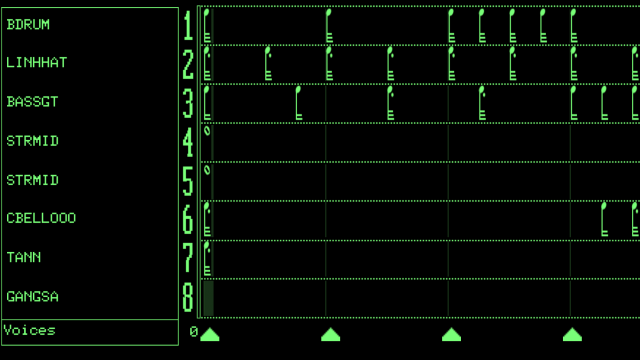
The Fairlight Computer Music Instrument catalysed the late 20th Century digital music revolution. From the visualisation of sound-on-screen, to combined sampling, sequencing, and synthesis capabilities in one machine, the Fairlight CMI forever transformed music creation and production. Fifty years from its inception, we reflect on the Fairlight CMI as a uniquely Australian innovation that resonated and shaped global popular culture. High profile Fairlight CMI users, including musicians Kate Bush, Peter Gabriel, and Stevie Wonder, often scaffold the narrative arc of Fairlight CMI stories. Yet its histories, technological construction, socio-political impact, and diverse musical output is underexplored. Launching their large-scale, international research project on the Fairlight CMI, music technology experts Professor Samantha Bennett (ANU School of Music) and Dr Paul Harkins (Edinburgh Napier University) host a one-day research symposium and present new findings on Fairlight CMI history, discuss technological and practical implications of Fairlight CMI refurbishment and maintenance, and critically (re)appraise common ideological narratives.
This is an in-person event only and tickets are strictly limited. Registration is essential.
This event is generously supported by the ANU School of Music and the ANU Research School of the Humanities and the Arts.
BIOGRAPHIES
Samantha Bennett is Professor of Music and Associate Dean Higher Degree Research at the Australian National University, Chair of the International Association for the Study of Popular Music (IASPM), and an active member of the Audio Engineering Society and Society for Music Production Research. Her research bridges music and science and technology studies (STS), and focuses on sound recording, music technologies, and the analysis of technologies and praxes in recorded popular music. She is the author, co-author, and co-editor of six books including her latest, ‘Gear: Cultures of Audio and Music Technologies’ co-authored with A/Prof Eliot Bates (CUNY) and forthcoming from The MIT Press, and her monograph, ‘Modern Records, Maverick Methods: Technology and Process in Popular Music Record Production 1978-2000’ (Bloomsbury Academic, 2018). Her journal articles are published in Popular Music, Popular Music and Society, Convergence, and the Journal of Popular Music Studies. Prior to her work in academia, Samantha worked in a number of London recording studios and is a former Director of the UK’s Music Producer’s Guild.
Paul Harkins is a lecturer in music at Edinburgh Napier University. His book, Digital Sampling: The Design and Use of Music Technologies was published by Routledge in 2019. He has published articles in Popular Music, Popular Music & Society, IASPM@Journal, Journal on the Art of Record Production, and Reseaux and co-edited a special issue of Popular Music on ‘Music and the Anthropocene in 2020.’ New research about to be published includes articles on the response of the music industries to the climate crisis, a feminist historiography of sampling, as well as work on the repair and maintenance of musical instruments. He is currently co-editing a special issue of Popular Music & Society about music making in domestic spaces.
Peter Wielk has been involved with audio, video and music production his entire working life. He currently runs a business, Horizontal Productions, restoring, selling and supporting the legendary Fairlight computer musical instruments, manufactured in the 1980s. He also worked with original designer Peter Vogel to develop the CMI-30A, and also a best-selling app emulating these early Fairlight instruments. He also designed, built and ran several successful studios in London. The last in Soho incorporated work in TV, film, multimedia and games, including sound design for the James Bond film “Goldeneye”. Throughout most of the 1980s, Peter worked as product specialist and studio manager at Fairlight Instruments in Sydney. He also worked in the studio with Duran Duran and toured with Mick Jagger. In early 1980 he worked for musician Peter Gabriel, at his home in Box, Wiltshire, and also toured with him as his technician and programmer. Before this Peter studied electronics and music in London at what is now City University, under legendary electronics designer Tim Orr. He has also co-written and appeared in a self-financed feature film shot entirely on location in Tibet. ‘The Dalai Lama’s cat’ which subsequently became one of the surprise hits of the Anchorage Alaska film festival.
Location
Contact
- Samantha Bennett+61261252712
File attachments
| Attachment | Size |
|---|---|
| FairlightEvent%20Schedule.pdf(110.11 KB) | 110.11 KB |